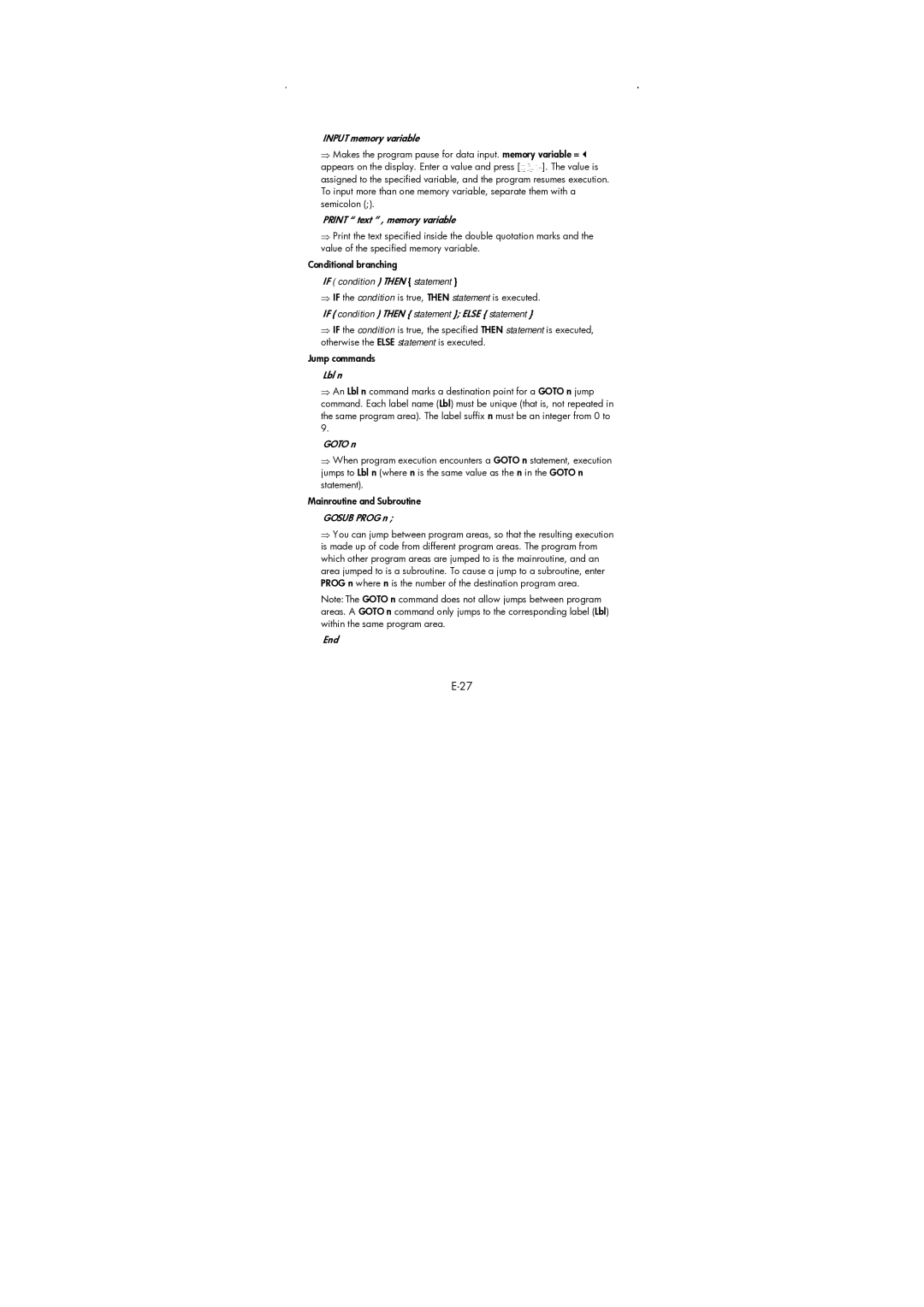INPUT memory variable
⇒Makes the program pause for data input. memory variable = _
appears on the display. Enter a value and press [![]() ]. The value is assigned to the specified variable, and the program resumes execution. To input more than one memory variable, separate them with a semicolon (;).
]. The value is assigned to the specified variable, and the program resumes execution. To input more than one memory variable, separate them with a semicolon (;).
PRINT “ text ” , memory variable
⇒Print the text specified inside the double quotation marks and the value of the specified memory variable.
Conditional branching
IF ( condition ) THEN { statement }
⇒IF the condition is true, THEN statement is executed. IF ( condition ) THEN { statement }; ELSE { statement }
⇒IF the condition is true, the specified THEN statement is executed, otherwise the ELSE statement is executed.
Jump commands
Lbl n
⇒An Lbl n command marks a destination point for a GOTO n jump command. Each label name (Lbl) must be unique (that is, not repeated in the same program area). The label suffix n must be an integer from 0 to 9.
GOTO n
⇒When program execution encounters a GOTO n statement, execution jumps to Lbl n (where n is the same value as the n in the GOTO n statement).
Mainroutine and Subroutine
GOSUB PROG n ;
⇒You can jump between program areas, so that the resulting execution is made up of code from different program areas. The program from which other program areas are jumped to is the mainroutine, and an area jumped to is a subroutine. To cause a jump to a subroutine, enter PROG n where n is the number of the destination program area.
Note: The GOTO n command does not allow jumps between program areas. A GOTO n command only jumps to the corresponding label (Lbl) within the same program area.
